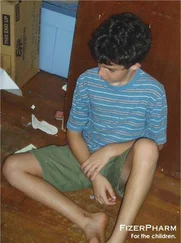Dust sheets covered the furniture, and the scent of undisturbed air hung heavy in every room. In the kitchen, the refrigerator hummed patiently. Well, at least the electricity is on , Jim thought as he carried his luggage into the front room. Later, he’d need to take a trip down to the store and grab some supplies.
Jim had always thought there was an odd sadness to a house that had been left vacant for a long period of time, an echoic air that extended far beyond the empty rooms and silence. It was temporal; as though the very walls had gone into hibernation, waiting for the owner to return, while at the same time, all the events that had ever taken place within them seemed frozen and available. It was as though he could reach out and pluck a single experience from the stillness. Jim felt that melancholia now as he moved from room to room checking the lights and windows, making sure all were working and intact. The place had a stillness that seemed more appropriate for a church than a home.
“Welcome home,” he said to himself.
* * *
For the next few weeks, Jim kept pretty much to himself. He explored the woods, fished the well-stocked lake.
Since he’d arrived at the cabin, Jim had found his thoughts frequently returning to the cause of the Slip . How had it happened? Was it manmade or some never before seen glitch in the clockwork mechanism of the universe? Or, was it as the Church of Second Redemption believed: that God had given humanity another shot, a second chance at their life? The answer eluded him, but the simple application of Occam’s razor meant he was erring on the side of manmade. Beside humanity’s ability to quickly adapt to new situations, Jim had long ago observed its propensity to royally screw things up just as easily.
When he distanced himself from the carnage that had been inflicted on the world, what was left was a fascinating conundrum that constantly plucked at his physicist’s mind. Time travel! Who would have thought it? It had long been seen as impossible within the scientific community, relegated to science-fiction novels and movies. But now it had been proven possible beyond a shadow of a doubt. Admittedly, it hadn’t happened played out in the way most science-fiction writers had imagined, but it had opened up a whole new frontier of possibilities for science. If it could be controlled it would become the most powerful tool humanity had ever created. Equally, it could also be the most terrible weapon, in the wrong hands.
That was assuming anyone could ever figure out just how it had happened, in the first place.
Strange how quickly the human mind could adjust to even the most seemingly outrageous of situations , Jim thought, as he walked back from the lake. He had a four-pound trout stowed in the ice box he carried in one hand, a tackle-box and fishing pole in the other. Still deep in thought, Jim mounted the back steps to the cabin, kicked off his boots and waders, and set his fishing pole and equipment down on an easy-chair where he spent his evenings watching sunsets.
He pulled open the screen-door and stepped into the mud room. As if sensing his presence, the phone in the living room began to ring, demanding his attention. He strode toward the noise. He hadn’t given the landline number to anyone, so it had to be a wrong number.
“Hello?” said Jim, into the phone’s receiver.
“ James Baston ?” a man’s voice asked.
“Who is this?”
At the other end of the phone line, the voice paused for a second before continuing. “ My name is Doctor Mitchell Lorentz, and I have an offer that, I hope, you will not want to refuse. ”
The sound of gravel crunching under tires alerted Jim to the arriving vehicle. It was exactly 11:00 am—his visitors were precisely on time— and Jim wondered whether the car had been idling on the approach to the lake house just so they could put in a punctual appearance.
Jim opened the front door and raised his hand in acknowledgment to the man exiting the passenger side of the vehicle as it pulled to a stop in the driveway. The car was a black Lincoln town car with government plates and tinted windows that obscured the driver. The passenger was a tall well-built man in army dress uniform who strode across the gravel approach with the confidence and bearing that only comes from years of military training and intense discipline.
“Mr. Baston? Colonel Geoffrey DeWitt,” he said, thrusting out a meaty hand. “Do you have any baggage, Sir?”
“Just these,” said Jim pointing over his shoulder to a suitcase and a travel bag leaning against the wall of the hallway. DeWitt picked them both up and took them to the back of the car, placing them in the trunk as Jim followed behind him.
“Doctor Lorentz has asked me to give you this, Sir,” said DeWitt, handing Jim an oversized manila envelope with the words top secret stamped in thick, outsized bright red ink across the face of it, and an embossed US Government seal in the top right corner. “He would like you to read it en route,” continued the colonel as he opened the rear passenger door and indicated for Jim to climb in.
“If there’s anything at all you need, Doctor, please don’t hesitate to ask. Just press the intercom and you will get right through to me up front.”
DeWitt closed the door behind Jim as he climbed into the backseat of the Lincoln. A smoked glass window separated the passenger’s compartment the front section of the vehicle. A TV monitor embedded into the paneling behind the driver’s seat gazed at him like a blank cyclopean eye.
As the car rumbled and crunched its way back towards the main road, Jim relaxed back into the exquisitely comfortable seat. It was going to be a long trip.
* * *
The briefing papers DeWitt had handed Jim—outlining a secret military communications’ project by the name of Tach-Comm—only added to the mystery of why he had been singled out by the enigmatic Doctor Lorentz. Despite rereading the papers three times, Jim still could not see how there could be any connection between him and the project.
It took three hours to make the drive from Jim’s place at Shadow Mountain Lake to the government installation on the outskirts of Reno It was an inconspicuous looking building, but as the Lincoln pulled up to the security gate Jim noticed the security protecting the complex was extraordinarily high. It was subtle but it was there if you looked.
The guards staffing the security booth both had side-arms in brown leather holsters fixed to their belts and, he noticed, a row of assault weapons were stashed within easy reach on a wooden rack toward the back of the booth. A chain-link fence topped with razor wire ran around the entire compound perimeter. Fixed periodically along the fencing were red-bordered triangular warning signs. The icon on the sign depicted a body struck by lightning with the words warning—high voltage printed in bold letters both above and below the image, clearly indicating what would happen to anybody stupid enough to touch the fence. Several low-key cameras were scattered strategically around the base, nestled surreptitiously between the lamps of overhead gantry floodlights, observing all those who entered and left as well as monitoring the movements of those who were already on the grounds.
In the distance, Jim could see an electric cart as it patrolled around the perimeter of the fence. Two burly men dressed in the same taupe uniform as the gate’s guards occupied the two seats. The complex was ostensibly a civilian site, but it was obvious to Jim from the level of security and the demeanor and professionalism of the guards (not to mention the smart salute the guard had executed when he saw Colonel DeWitt) that the military played a grand part in the running of the place.
Читать дальше












